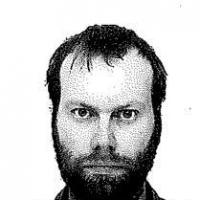Beiträge: 26
Sprache: English
darkweasel (Profil anzeigen) 27. April 2012 21:26:47
Chainy (Profil anzeigen) 27. April 2012 21:36:33
Hyperboreus:robbkvasnak:to trump Esperantoeinja:improving Esperantosudanglo:'improve' on EsperantoBut the ones talking about trumping and improving are you, and not the OP of this thread.
He just talked about creating a conlang. He didn't mention taking over the world, replacing Esperanto, trumping other conlangs, improving human communication or the such. If I read him right, he just wants to create a conlang. For fun? For the lulz? For practice? I cannot tell.
 Hyperboreus has got a good point. The rather touchy reactions seem to have scared dafyddmabblaidd away!
Hyperboreus has got a good point. The rather touchy reactions seem to have scared dafyddmabblaidd away!The problem is clearly that the English language forum is officially reserved for questions about Esperanto, so such subversive activity is not allowed here. It's fine in the Esperanto language section, though.
Chainy (Profil anzeigen) 27. April 2012 21:49:34
darkweasel:This posting is here just in order to link to another thread by the same user without any comment.
 Probably not a good idea to post such a thread in some botched form of Esperanto.
Probably not a good idea to post such a thread in some botched form of Esperanto. Miland (Profil anzeigen) 28. April 2012 22:22:22
dafyddmabblaidd:Who would like to join me in creating a conlang with roots deriving from Lojban, Loglan, Esperanto, Ido, Universal, and Volapük...and any others that you want to suggest/add to..You might wish to add to this brew Lancelot Hogben's Interglossa, Peano's Latino sine flexione, and Balaibalan.
However, speaking for myself, I would rather not join in such an enterprise.

Ferrus (Profil anzeigen) 29. April 2012 10:07:30
sudanglo:But this necessitates a previous community of speakers in which there was social consensus about meaning and usage, what counts as being well-formed etc., all of which is still remembered by the last remaining speakers.What about a language such as Cornish? It died out, effectively in the early 18th century, and unlike, say Latin or Sanskrit did not continue to subsist on social traditions. Only within the last 10 years has a revival movement been formed. The last remaining speakers were larger illiterate fishermen, such that the rules for what were considered well-formed sentences were larger or partially forgotten and in some cases have had to be derived from equivalent 'Celtic' languages. Did Cornish cease to be a 'real' language in the interim? For what it is worth, I don't really know the answer, but it strikes me the definition categories of a socially defined language are more subtle than they first appear.
Bruso (Profil anzeigen) 30. April 2012 01:57:38
Ferrus:Um, you've got a lot of facts wrong here. The Cornish revival, even what can be called the modern part of it, began over a century ago (with Henry Jenner's Handbook of the Cornish Language in 1904). Only a small part of the language has been recovered from those "illiterate fishermen" (The part recorded by one man, Edward Lhuyd, around 1700). Most has been recovered from written sources, especially the religious plays recorded by monks at Glasney.
What about a language such as Cornish? It died out, effectively in the early 18th century, and unlike, say Latin or Sanskrit did not continue to subsist on social traditions. Only within the last 10 years has a revival movement been formed. The last remaining speakers were larger illiterate fishermen, such that the rules for what were considered well-formed sentences were larger or partially forgotten and in some cases have had to be derived from equivalent 'Celtic' languages.
There is indeed missing vocabulary, and even some missing grammatical forms, which were derived by assumption that they resembled Welsh or Breton. And of course there are modern coinages for things that didn't exist in 1700, like airplanes and computers.
There are languages being reconstructed on much less evidence than Cornish. One of them is Norn.
